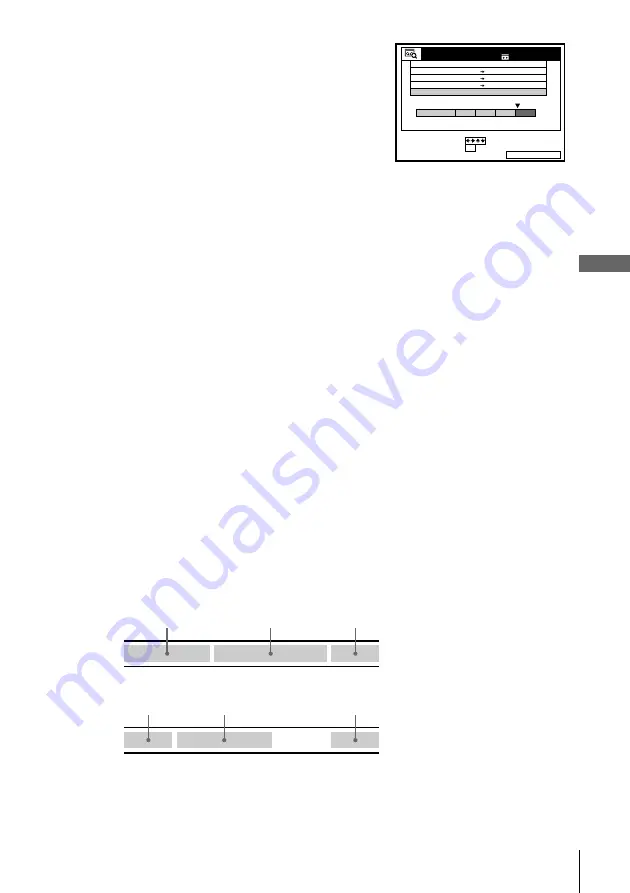
73
Searching using the Acces Smart function
Ad
d
itiona
l O
p
e
ra
tions
To record in a blank space
Blank space on the tape will appear as a blank
row in the ACCES SMART screen. Select the
last blank row in step 3, then press OK. The
VCR rewinds/fast-forwards the tape to the
beginning of the blank space, then stops.
Start recording. Note that “ESPACE
VIERGE” and the remaining time indication
only refers to the length of the last blank
space.
Tips
• You can store information for up to 24 programmes on a single list.
• While recording, you can display the ACCES SMART screen using the ACCES
SMART button. If you decide to stop recording, press MENU to make the ACCES
SMART screen disappear first. Then press
x
STOP.
• You can have the player recall the data of the last cassette used to record
programmes even after you eject the tape (see page 77).
Notes
• You cannot use this function unless the clock is set.
• Depending on the tape, the total or remaining time may not appear correctly.
• If many short programmes are recorded on a tape, multiple programmes may be
included in a single block. In this case, only the latest programme information will
appear in the ACCES SMART screen.
• Blank time is measured from the end of the last recorded programme to the end of
the tape. However, if you eject the tape and then make a new recording on the
same tape, the original recorded programme(s) is displayed as a blank space.
• The station name* may not appear if the VCR does not receive station name
information signals.
• If you start recording a programme “D” from the middle of a previously recorded
programme “A” and into another previously recorded programme “B,” the Acces
Smart information for the second programme “B,” which is recorded over, is
deleted.
* not available on SLV-SE610B
:
DATE
HEURE
PROG.
:
:
OK
ACCES SMART
REGLER
SELECTIONNER
ENREG.
3 0 MIN.
ESPACE VIERGE
1 4 : 0 0
1 5 : 0 0
FGH
0
2 9 . 9
. 9
3
2 0 : 0 0
2 1 : 0 0
AAB
6 : 3 0
7 : 0 0
1 . 1 0
I J K
1 8 0 MIN.
ACCES SMART
Originally recorded programmes
A
B
Recording the programme “D” over the programme “A” and “B”
C
A
D
C






























